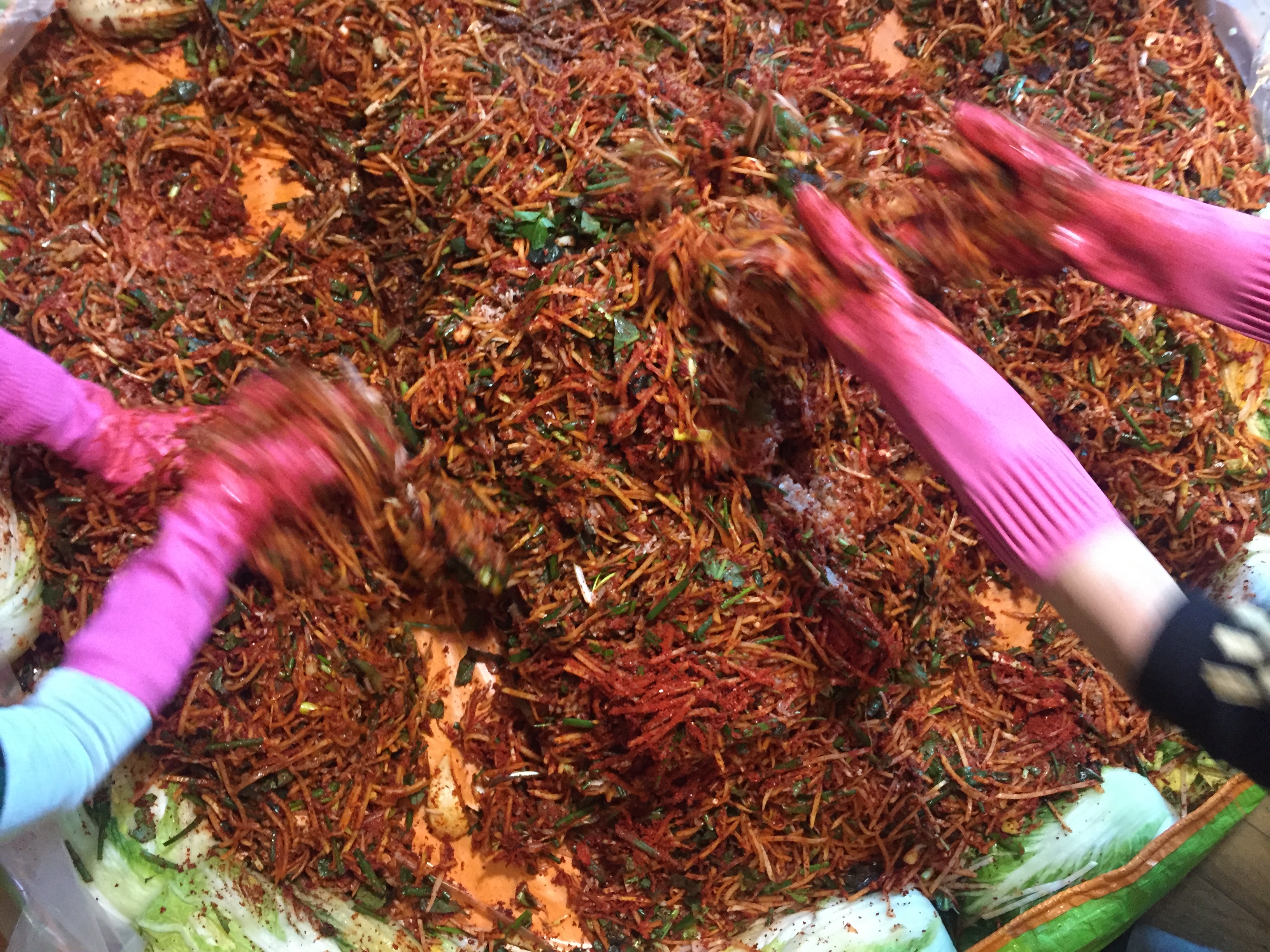

You just listened to a snippet of my grandmother’s memories of kimjang kimchi. Kimjang kimchi is a type of kimchi you make in bulk and eat throughout a year. Historically, the labor intensive and time consuming activity of making this Korean household staple has heavily been a women’s burden. My mother, my grandmother, and her mother all share the bitter and cold memories of kimjang season, always taking place in the coldest month of the year to use the freshest vegetables and prevent rapid fermentation. But it was also a collective and communal activity where women would share stories, laugh together, and support each other, as well as an opportunity to share generously with others. Today, many women in South Korea don’t make their own kimjang kimchi anymore because it’s conveniently available in stores. Along with this trend, the social convention that it’s their responsibility is vanishing as well. However, South Korea’s deep-rooted sexism and misogyny don’t seem to vanish so easily. This project emulates the process of a collective kimjang to engage in conversations about the history, labor, status, and experiences of women in South Korea. I dedicate this project to my grandmother who once was forced to use a Japanese name, was denied education because of her gender, migrated across the Korean peninsula as a refugee during the war, and sacrificed her entire life for her children.